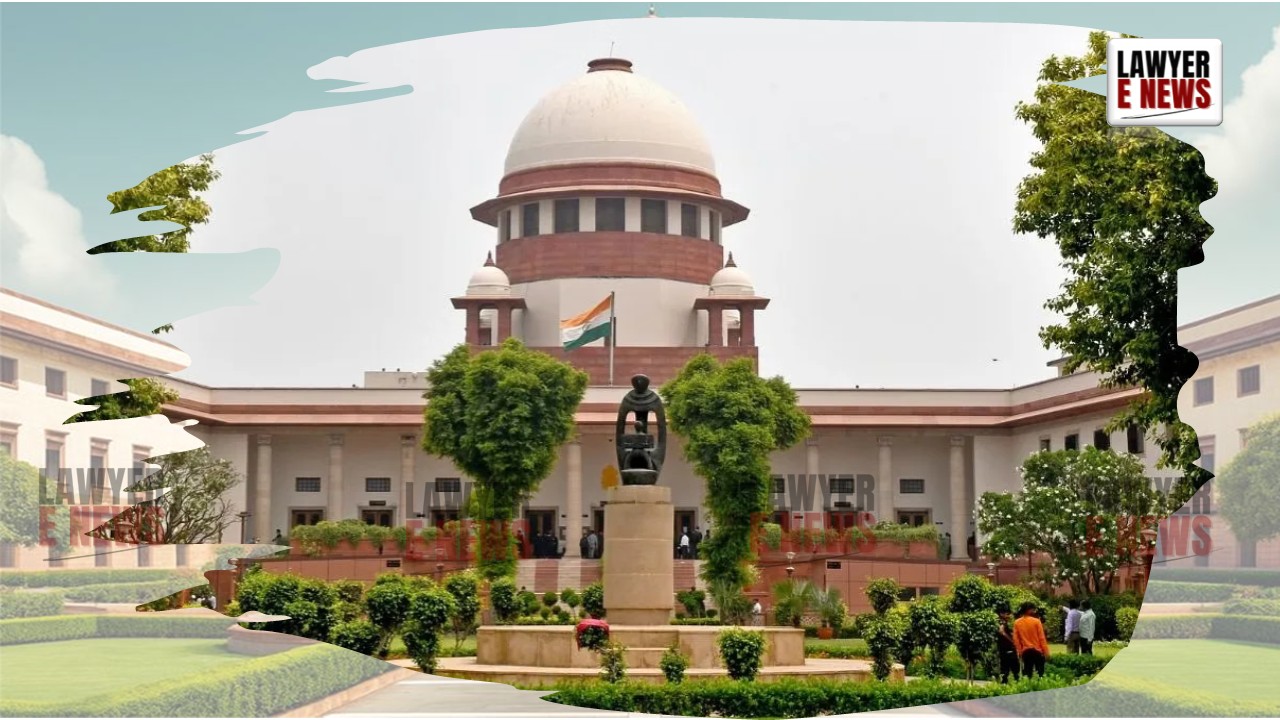-
by sayum
17 February 2026 8:32 AM



“Suspicion, however strong, cannot take the place of evidence… To presume culpability of a close relative merely because transactions are in their name is to dangerously reverse the burden of proof”, - Supreme Court of India delivered a split verdict in P. Nallammal v. State by Inspector of Police, Vigilance and Anti-Corruption, Tamil Nadu, a case involving allegations of disproportionate assets amassed by a former Tamil Nadu minister and his wife. While Justice Ahsanuddin Amanullah acquitted the wife, holding that the prosecution failed to prove her knowing participation or mens rea, Justice Sudhanshu Dhulia upheld her conviction, observing that her active involvement in multiple property transactions amounted to intentional aid.
At the heart of the case lay the legal question of whether a non-public servant spouse can be held guilty of abetment under the Prevention of Corruption Act, 1988, and whether mere registration of assets in a spouse’s name suffices to establish abetment. The matter has now been referred to the Hon’ble Chief Justice of India due to the disagreement between the judges.
Justice Amanullah: “Name-lending Alone Does Not Prove Criminal Intent”
Justice Ahsanuddin Amanullah authored a detailed opinion emphasizing that constitutional protections under Articles 14 and 21 require strict adherence to the burden of proof in criminal trials, especially where liberty is at stake. He ruled that the conviction of P. Nallammal, wife of deceased former minister A.M. Paramasivam, could not be sustained solely on the basis of property being registered in her name during her husband's tenure in office.
He declared, “This Court cannot be oblivious to human realities, especially the usual course of human conduct in marital relationships… The prosecution never attempted to prove that the appellant was aware that the funds used were of illicit origin.”
Critically, Justice Amanullah drew attention to the absence of any evidence indicating conspiracy or intentional aid, holding: “It would be unsafe to sustain her conviction with the aid of Section 109 IPC. Suspicion, however strong, cannot take the place of evidence.”
On the prosecution’s burden under Section 13(1)(e) of the Prevention of Corruption Act, the Court noted that while the statute allows for a presumption once disproportionate assets are established, this burden cannot be shifted to non-public servants without foundational proof of involvement.
He warned against a dangerous precedent: “To presume culpability of a close relative… merely on the ground that certain transactions were made in such relative’s name would be akin to reversing the burden of proof.”
Justice Dhulia: “Spouse Who Facilitates and Holds Assets Cannot Claim Ignorance”
Justice Sudhanshu Dhulia, dissenting, took a firm stand that P. Nallammal had knowingly aided her husband by allowing properties to be registered in her name and actively participating in numerous high-value transactions during the check period. He emphasized the pattern and volume of acquisitions: “There is no doubt that the appellant intentionally aided her husband in the accumulation of disproportionate assets… these transactions were neither few nor incidental.”
He rejected the appellant’s explanation of gifts and agricultural income as vague and unsubstantiated, stating, “The accused failed to provide credible, cogent evidence to explain the origin of these assets. The Trial Court and High Court have rightly disbelieved the defence story.”
Justice Dhulia relied heavily on the precedent set in P. Nallammal v. State (1999)—a case ironically filed by the same appellant earlier to challenge her prosecution—where the Court had clarified that non-public servants can be prosecuted under the Prevention of Corruption Act if they abet the offence.
He held that the appellant's conduct fit precisely within the third illustration under Section 107 IPC: “Where the public servant requests a close relative to hold tainted property in their name, and the relative obliges, abetment is made out.”
“Her repeated visits to the registrar’s office, her role as guardian of the minor children in the acquisition of multiple plots and vehicles, and the complete lack of independent income during the relevant period—all point unmistakably to intentional aid,” Justice Dhulia concluded.
Diverging Interpretations of Abetment and Burden
This case has now crystallized a deeply important legal divergence on what constitutes abetment by a spouse of a public servant. Justice Amanullah’s acquittal was rooted in the principle that “presumption of innocence is not a mere formality, but a fundamental right traceable to Articles 14 and 21 of the Constitution.”
Meanwhile, Justice Dhulia’s opinion emphasized the circumstantial inferences from conduct and economic realities, asserting that “where the spouse has no known income and yet holds a series of high-value properties during the husband’s tenure in public office, denial of knowledge defies logic.”
The divergence lays bare the tension between two competing values: preserving liberty against overreach versus ensuring accountability in public corruption.
Attachment of Property and Procedural Challenges
While the judges disagreed on the conviction, both were unanimous in upholding the attachment of disproportionate assets under the Criminal Law Amendment Ordinance, 1944, holding that the assets could remain attached even if the wife were acquitted. The recalculation by the High Court, reducing the amount from ₹35.25 lakhs to ₹33.25 lakhs, was also affirmed.
On the administrative controversy surrounding the missing 2013 High Court judgment, both judges rejected the challenge to the Chief Justice’s administrative order for fresh hearing, noting: “There did not exist any judgment dated 30.04.2013. The Chief Justice of the High Court cannot be faulted for restoring the criminal appeal for hearing.”
This split verdict reflects the Supreme Court’s evolving and careful approach to the evidentiary threshold in corruption cases involving family members. While one opinion champions constitutional protections and the presumption of innocence, the other insists that spouses cannot escape liability when they knowingly act as instruments in corrupt dealings. The final determination now rests with the Chief Justice of India, who will assign the matter to an appropriate bench.
Date of Decision: May 7, 2025
